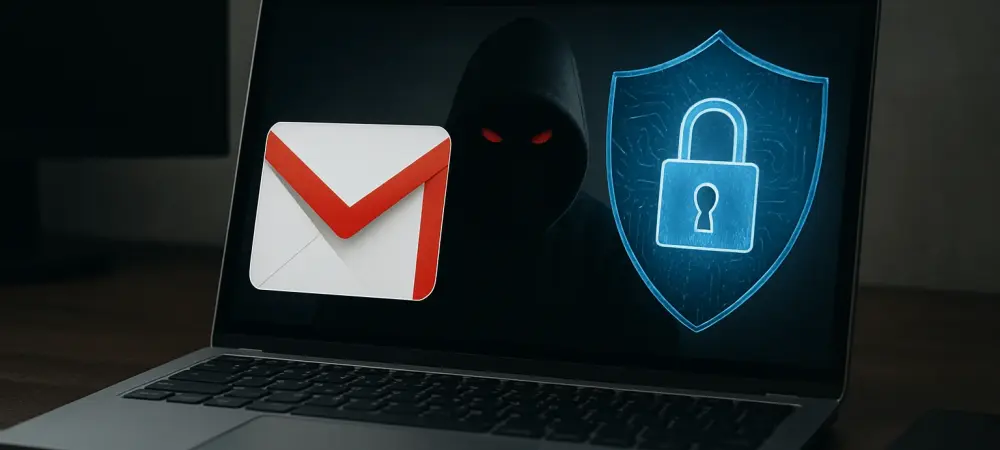Dominic Jainy is a recognized expert in the fields of artificial intelligence, blockchain technology, and machine learning, known for his insights into their applications across diverse industries. Today, he shares his expertise on cybersecurity threats, specifically focusing on the escalating risks posed to Gmail users by sophisticated hacking groups, such as the Russian state-sponsored UNC6293.
Can you explain who UNC6293 is and why they pose a significant threat to Gmail users?
UNC6293 is a notorious hacking unit believed to be operated by Russian state actors. They pose a significant threat primarily due to their sophisticated techniques, which not only aim to steal passwords but also bypass two-factor authentication. This makes them particularly dangerous to Gmail users, whose accounts are heavily targeted due to the large amount of personal data stored in them and the sheer volume of Gmail’s user base.
What tactics are being used by Russian state-sponsored hackers to compromise Gmail accounts?
These hackers employ a range of tactics, including phishing and social engineering, to deceive users into revealing their credentials. One notable attack involves luring users to create application-specific passwords, granting third-party access to their accounts. They also impersonate organizations, like the U.S. State Department, to make their phishing attempts more convincing.
Can you elaborate on the application-specific password attack mentioned in the article?
Certainly. The application-specific password attack is a clever tactic where hackers persuade users to generate a unique password intended for apps that don’t support two-step verification. This invites unauthorized third-party apps or hackers into their accounts. Once inside, these intruders can manipulate account settings and access sensitive information.
Why is Gmail a common target for hacking attempts compared to other email platforms?
Gmail is targeted more frequently due to its massive user base and the valuable data users store within their accounts. With billions of users worldwide, breaking into Gmail accounts is particularly lucrative for hackers seeking financial gain or espionage opportunities. The platform’s popularity makes it a high-profile target, drawing more persistent attack efforts from cybercriminals.
What role does social engineering play in these types of cybersecurity threats?
Social engineering is a critical component of these threats, as it exploits human psychology rather than technical vulnerabilities. Hackers craft messages and scenarios that trick users into revealing passwords or clicking on malicious links. By impersonating trusted sources, they leverage the innate trust and urgency to manipulate users into compromising their security.
How does Google notify users when an application-specific password is created?
Google sends a notification to the user’s Gmail account and associated devices immediately after an application-specific password is generated. This prompt advises users to verify whether they indeed authorized this action. It’s an essential security measure to alert users and prevent unauthorized access from the outset.
What should a user do if they receive such a notification without their authorization?
If a user receives a notification about an application-specific password they did not authorize, they should act promptly. Firstly, they need to change their password and enable two-factor authentication if it isn’t already active. Also, reviewing account settings for any suspicious changes and running a security check through Google’s Account Security Check is advisable.
What is the Advanced Protection Program offered by Google, and who should consider using it?
Google’s Advanced Protection Program is designed for individuals at high risk of targeted attacks, such as activists, journalists, and political figures. It offers enhanced security features that prevent accounts from being accessed through application-specific passwords. Anyone who deals with sensitive information or believes they might be targeted should consider enrolling in this program.
How effective is the Advanced Protection Program in preventing attacks like the one orchestrated by UNC6293?
The Advanced Protection Program is highly effective against such attacks because it provides multiple layers of security, including blocking application-specific passwords altogether, which is one of the tactics UNC6293 uses. It ensures only verified devices can access an account, significantly mitigating these types of targeted cybersecurity threats.
What immediate steps should a Gmail user take to secure their account against hacking attempts?
To secure their Gmail accounts, users should immediately replace their password with a passkey, offering better security against brute force attacks. Enrollment in the Google Advanced Protection Program is strongly recommended, as is running Google’s Account Security Check to identify potential vulnerabilities and make necessary adjustments.
Can you describe the importance of replacing a password with a passkey?
Replacing a password with a passkey enhances security because passkeys are more complex and can thwart many traditional cracking methods. They incorporate multi-layered authentication processes, which significantly raise the bar for hackers trying to infiltrate an account.
How does running Google’s Account Security Check enhance account protection?
Running Google’s Account Security Check allows users to verify how robust their account defenses are currently. It identifies weak points, suggests improvements, and ensures settings align with best security practices, like turning on two-factor authentication and reviewing permission granted to third-party apps.
How can users differentiate between legitimate messages from Google and phishing attempts that mimic them?
Users should check the sender’s email address carefully, ensuring it matches Google’s official domains without spelling errors. Genuine Google messages will never ask for personal or financial information, so any message asking for such details is likely phishing. Users should look for subtle inconsistencies or unusual requests in any messages.
Are there any common signs or red flags that would indicate a Gmail account is being targeted by hackers?
Common signs of a targeted Gmail account include unusual login attempts from foreign locations, unexpected password changes, strange unauthorized application-specific passwords, altered account recovery details, and an influx of spam. Promptly changing passwords and scrutinizing account activity can help mitigate further implications.
Do you have any advice for our readers?
Stay vigilant and proactive with your digital security. Regularly update your passwords to complex passkeys, scrutinize suspicious messages, and utilize advanced protection programs if you work with sensitive data. Awareness and prompt action are key deterrents against evolving cyber threats.

